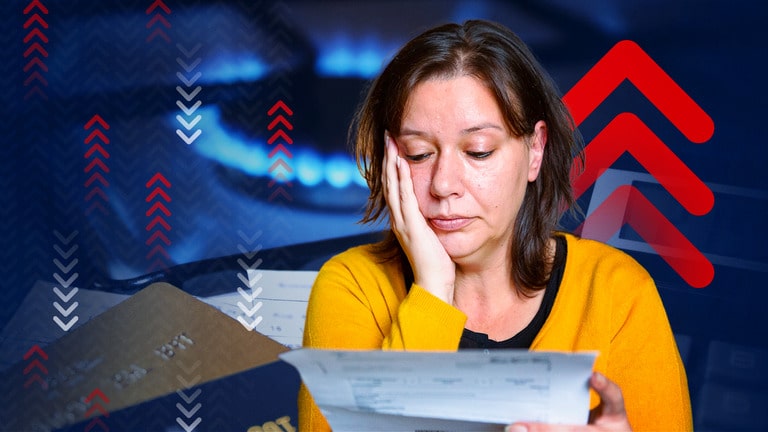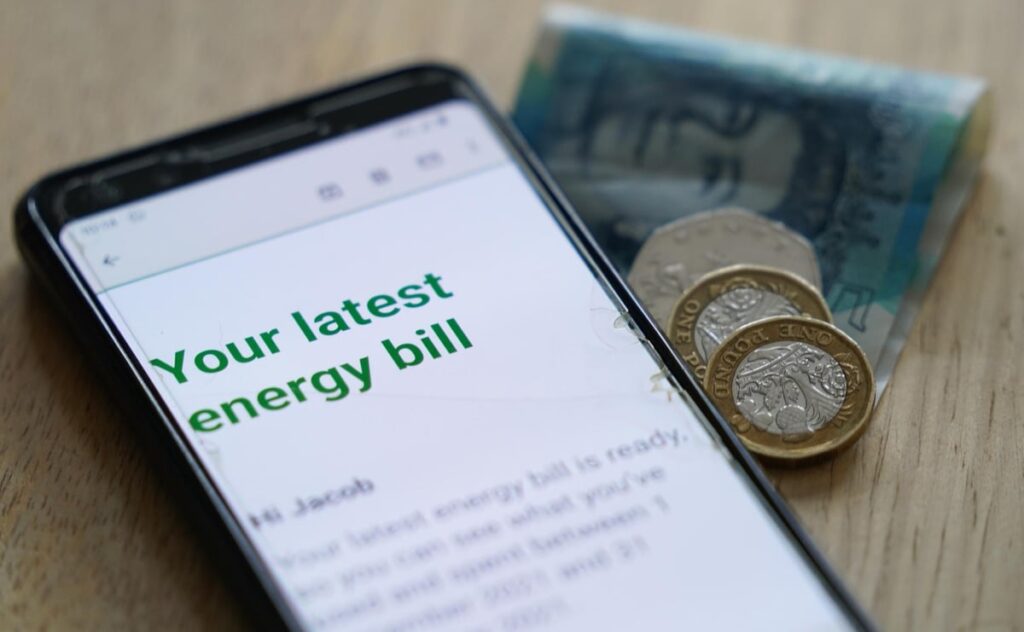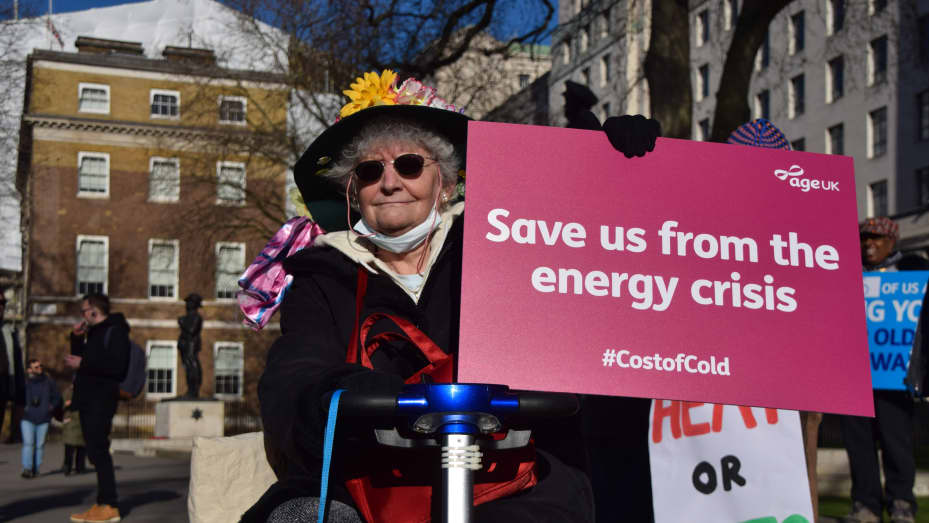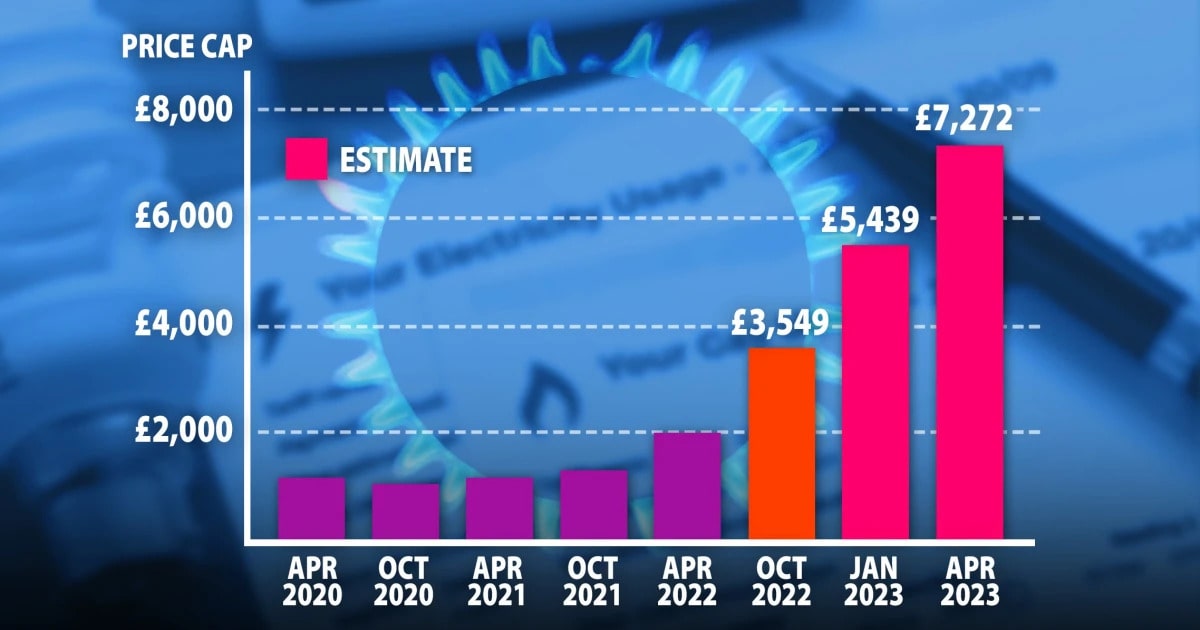From this April help with energy costs will be less generous, with bills for a typical household going up to £3,000.
There are plans however for more support for the most vulnerable and at risk
Businesses will also feel the pinch as their assistance will be reduced from March.
Contents:
Will there be any support available?
From April, some groups across the UK will receive cash payments to help with energy costs:
- £900 to households on means-tested benefits
- £300 for pensioner households
- £150 to people on certain disability benefits
- More details will be released in due course

What is the current energy price guarantee and how is it changing?
Under the current energy price guarantee, a household using a typical amount of gas and electricity would pay £2,500 annually.
The guarantee began in October, and was originally meant to last for two years, before the government said it would end in April 2023.
The Chancellor, Jeremy Hunt then announced the guarantee would continue, increasing it by £500 to £3,000 from April this year.
Previously, the energy regulator Ofgem set the maximum suppliers could charge households per unit of energy.
Why have energy prices gone up?
This is a multifactorial issue and without getting too bogged down we will cover a few of the main reasons here.
The Covid pandemic hit us hard and the Bank of England printed £500 billion during that time, a form of quantitative easing to try and stimulate the economy. The more money you have in circulation the more it drops in intrinsic value.
We had and still have supply chain issues for many of our consumables that come from China this has had a knock on effect of price increases across many sectors.

At the end of October 2021 there was an unseasonable cold snap across Europe and the demand for natural gas increased.
This was combined with a decrease in wind and sun hours, therefore, reducing our Green energy production.
Natural gas prices started to increase dramatically through November as demand grew.
And then the final nail in the proverbial cost of living coffin would be Russia’s invasion of Ukraine and the sanctions that followed it.
Oil prices had already been on a steady rise prior to 2021, with the effects of Brexit making it already hard to contain.
The United Kingdom imports the third-highest volume of its crude oil and second-highest volume of its natural gas liquids from Russia.

Moreover, Russia is the second-largest exporter of crude oil globally. War efforts and subsequent sanctions from such a powerhouse in the global energy ecosystem will rock the entire world.
We have now shifted and are aiming to double our imports from the USA this year to make up for the gas not coming from Russia.
As demand has grown so has the price from the suppliers and the traders here in Europe which means increases for the end consumer.
All of these reasons compound have lead an energy crisis, and the UK is right at the centre of it.
Am I a typical household?
The £3,000 figure for a typical household is based on a direct debit customer using 12,000 kWh (kilowatt hours) of gas and 2,900 kWh of electricity a year.
However, most households aren’t typical.
Bills are based on how much energy you actually use, which depends on the number of people living there, the type of property and its energy efficiency.
The price guarantee applies directly to all households in England, Scotland and Wales, with the “same level of support” available in Northern Ireland, which has its own energy market.
Is the National Grid doing something to reduce bills?
There is a National Grid scheme running between November and March which rewards households and businesses using less peak-time electricity.
You will need a smart meter to sign up for the trial, which will run on 12 “test days”.

People who don’t use high-energy appliances such as washing machines during a set hour of each test day will get up to £3 per kilowatt hour off their bill.
What help are businesses getting?
Under the energy bill relief scheme:
- businesses get a discount based on a “government supported price” of 21.1p per kWh for electricity and 7.5p per KWh for gas
- organisations on fixed price contracts are eligible if their deal started after 1 April 2022
- those on variable tariffs receive an automatic discount for each unit of energy used
- the savings began to appear in November’s bills (backdated to October) and are applied automatically
The scheme applies to all non-domestic energy customers in England, Scotland and Wales, with a parallel scheme in Northern Ireland.
As expected, the government has confirmed that support for firms in the subsequent 12 months will be much less generous.
With the new scheme, firms will get a discount on wholesale prices rather than costs being capped.
Heavy energy-using sectors, like glass, ceramics and steelmakers, will get a larger discount than others.
The government said that the move was necessary to keep costs to the taxpayer down.
What help have people already had?
- All households are automatically getting a one-off £400 discount on their fuel bills, spread over six months between October 2022 and March 2023.
- Households in Northern Ireland – which has its own energy market – will receive a single payment of £600 starting in January, more than in the rest of the UK because of the widespread use of heating oil.
- Eight million low-income households who get certain benefits or tax credits have received £650 in two payments.
- Pensioner households got £300 and some disabled people were paid £150.
This help was being partly funded by a temporary windfall tax on oil and gas companies.
Vulnerable families can also claim help through the Household Support Fund, and the Warm Home Discount scheme.

Energy companies also run hardship funds, although the regulator Ofgem said most firms needed to do more to help struggling customers.
We will bring you more news and information when we know more about this latest price hike.
If you haven’t already checked out our Energy Bill Hacks E-book then I would suggest now is the time!
We have taken over 100 of the best proven FREE strategies to lower your energy bills and combined them into an easy to read, room by room hacking guide.


I would love to do this experiment but my “smart meter ” hasn’t worked for nearly 2 years